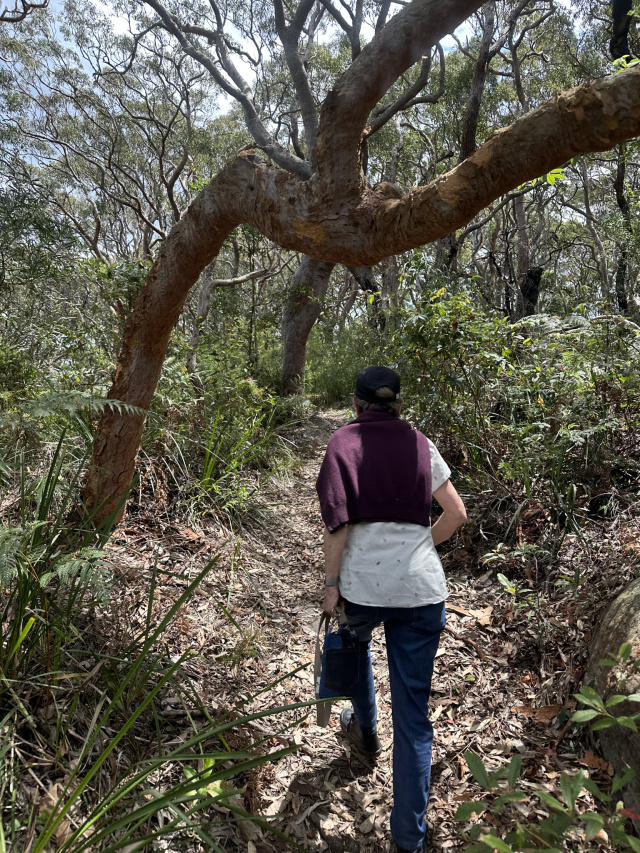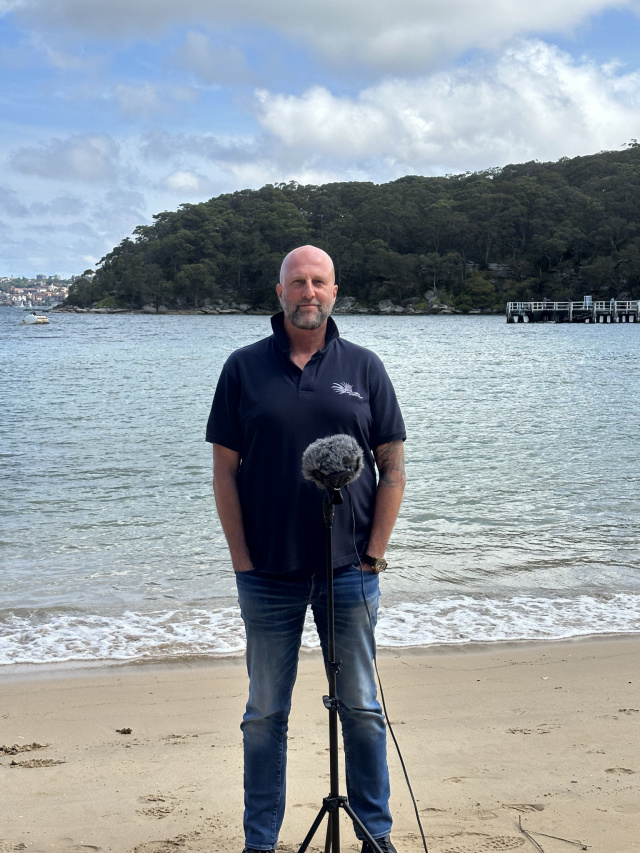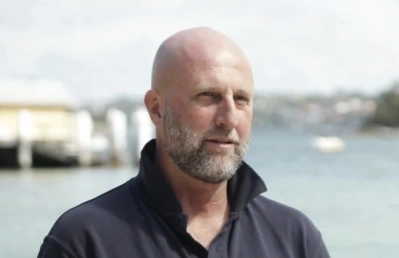Connection with nature turns hope into action
Mosman
Hope is not enough. Hope is not going to solve our problems. I think we can’t just hope for someone else to take charge, and for someone else to make the changes we have to make.
And we're going to have to make changes, right? I think that inevitability is coming at us at a rate of knots. But I think having this kind of deep connection to the environment that we live in, it turns hope into action.
People start to look at it and go, "Well, I don't want to lose it, I'll make personal choices." And those personal choices can be everything from, you know, the way we choose our elected officials to the choices you make in, you know, using single-use plastics, to the choice you make in personal transportation, to the dozens and dozens of personal choices every day, whether you realise it or not, that have an impact on the planet. And I think the more connected people are to this, and don't want to lose it, and don't want to continue to damage it, I think that is what converts hope to action.

Our Indigenous population have been custodians of this for, well the recorded history alone of Sydney Harbour is probably over 20,000 years. In 250 years, we have done traumatic damage to it, and we're never going to get it back to the pristine state it was, even a thousand years ago.
But what I hope, is that, Sydney-siders value what we have. We love what we have, and that through large programs of work with government, the EPA, policy, legislation, we are able to continue to improve it so that future generations - my kids, their kids, their kids’ kids, will have equitable access to something that is very special.
Right now is the time to change.
We have a western boundary current that runs down the east coast of Australia, the east Australia current, and some of that is the most rapidly warming waters in the world.
We're having marine heatwaves we've never seen before. I read an article recently that, from a fisherman, who was out fishing for marlin, and he talked about the seasons months in advance of what they would usually have seen.
The change is upon us right now. So my hope is that people step up, that they see it's not too late, that they convert hope to action, and that our kids have the same special connection that we have today.
Cover Image: Mika Korhonen on Unsplash

The change is upon us right now. So my hope is that people step up, that they see it's not too late, that they convert hope to action, and that our kids have the same special connection that we have today.

Brett Fenton
Hope is not enough. Hope is not going to solve our problems. I think we can’t just hope for someone else to take charge, and for someone else to make the changes we have to make.
And we're going to have to make changes, right? I think that inevitability is coming at us at a rate of knots. But I think having this kind of deep connection to the environment that we live in, it turns hope into action.
People start to look at it and go, "Well, I don't want to lose it, I'll make personal choices." And those personal choices can be everything from, you know, the way we choose our elected officials to the choices you make in, you know, using single-use plastics, to the choice you make in personal transportation, to the dozens and dozens of personal choices every day, whether you realise it or not, that have an impact on the planet. And I think the more connected people are to this, and don't want to lose it, and don't want to continue to damage it, I think that is what converts hope to action.

Our Indigenous population have been custodians of this for, well the recorded history alone of Sydney Harbour is probably over 20,000 years. In 250 years, we have done traumatic damage to it, and we're never going to get it back to the pristine state it was, even a thousand years ago.
But what I hope, is that, Sydney-siders value what we have. We love what we have, and that through large programs of work with government, the EPA, policy, legislation, we are able to continue to improve it so that future generations - my kids, their kids, their kids’ kids, will have equitable access to something that is very special.
Right now is the time to change.
We have a western boundary current that runs down the east coast of Australia, the east Australia current, and some of that is the most rapidly warming waters in the world.
We're having marine heatwaves we've never seen before. I read an article recently that, from a fisherman, who was out fishing for marlin, and he talked about the seasons months in advance of what they would usually have seen.
The change is upon us right now. So my hope is that people step up, that they see it's not too late, that they convert hope to action, and that our kids have the same special connection that we have today.
Cover Image: Mika Korhonen on Unsplash

The change is upon us right now. So my hope is that people step up, that they see it's not too late, that they convert hope to action, and that our kids have the same special connection that we have today.
You might like...

David Attenborough on how to save our planet

A kid running amok to action for nature

Children in Nature

Wangari Maathai - founder of the Green Belt movement
Newsletter
Sign up to keep in touch with articles, updates, events or news from Kuno, your platform for nature
